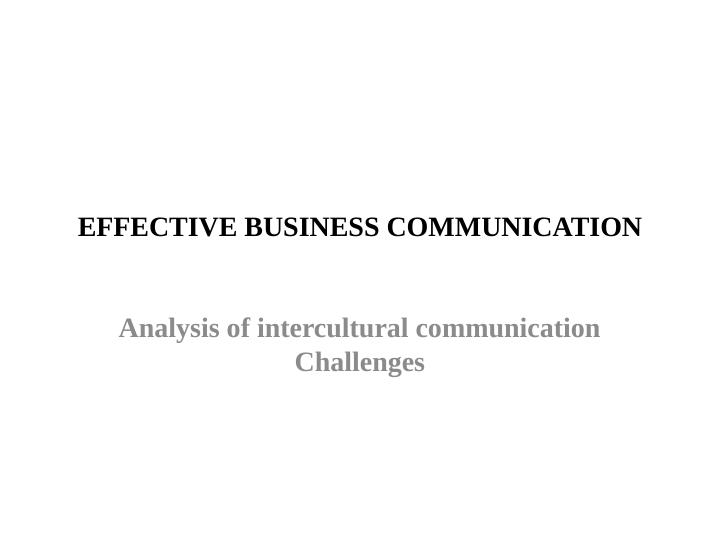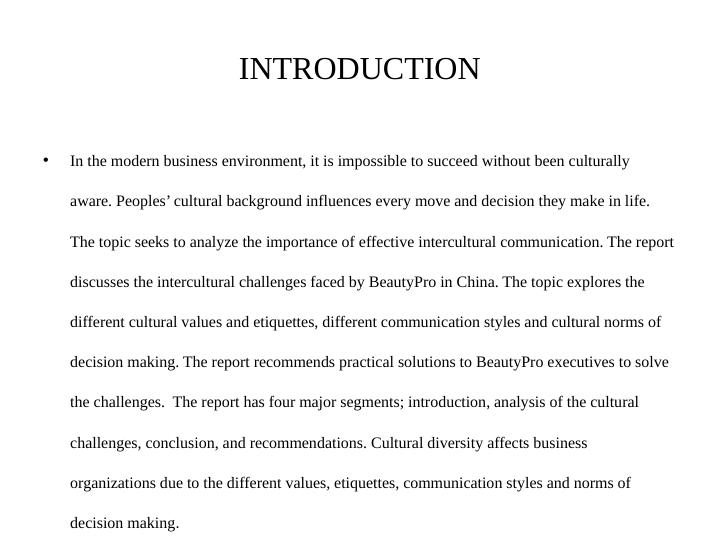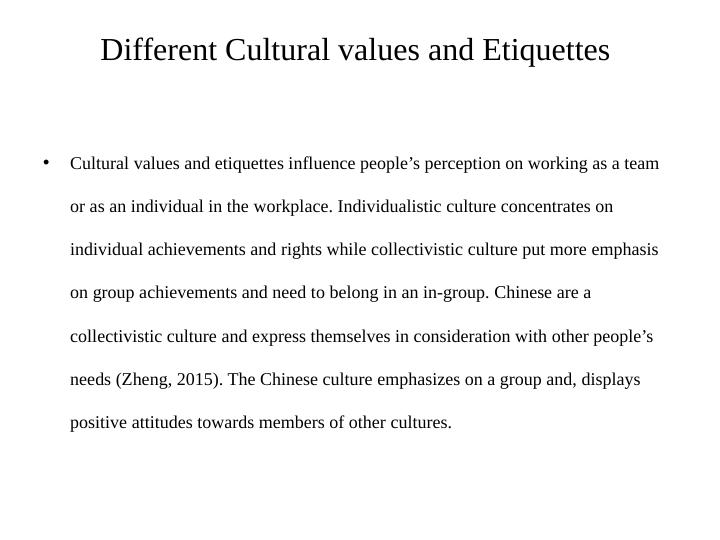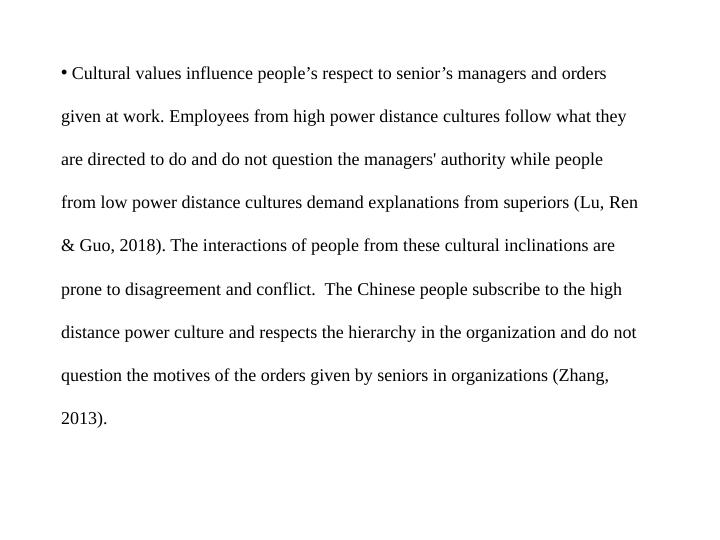Intercultural Communication Challenges and Recommendations for BeautyPro Company in China
Added on 2023-06-04
14 Pages1572 Words442 Views
End of preview
Want to access all the pages? Upload your documents or become a member.
Effective Intercultural Communication
|17
|5290
|461
Effective Intercultural Communication: Analysis of Challenges Faced by BeautyPro in China
|16
|1425
|234
Effective Business Communication in a Multicultural Environment
|16
|4984
|149
Intercultural Communication: Importance, Challenges and Recommendations for BeautyPro
|23
|1971
|430
Effective Business Communication: Analysis, Challenges, and Recommendations
|17
|853
|91
Extending Business in the Foreign Market: Impact of Cultural Factors
|18
|4239
|197




